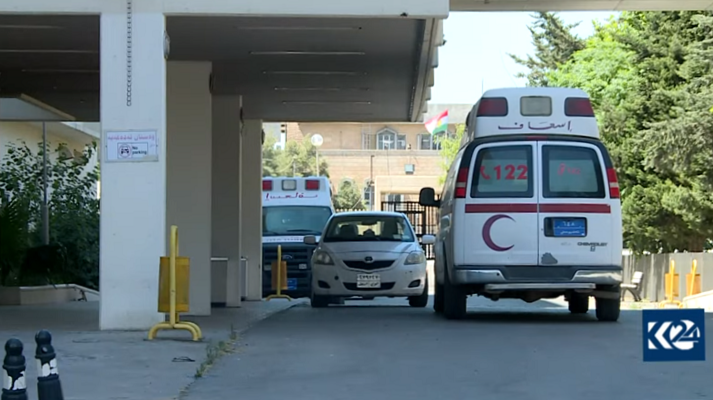COVID-19: Kurdistan Region’s daily infections fall to around 370 cases

ERBIL (Kurdistan 24) – The coronavirus daily infections across the Kurdistan Region has lowered to nearly 370 cases, according to health official data, compared to the past weeks and months where the autonomous Kurdish region recorded alarming surges.
In their daily coronavirus update, officials from the regional health ministry announced 379 new infections over the previous 24 hours out of more than 5,125 tests completed in that period.
This marks a sharp decrease compared to the recent weeks and months, in which the Kurdistan Region experienced alarming daily surges of infections.
The Kurdistan Region has, thus, seen 95,235 cases of COVID-19.
Health authorities also announced 17 new deaths in the same period, bringing the number of fatalities to 3,078.
Officials have attributed a recent spike in the number of patients—at times over 1,000 new daily cases—primarily to the public’s failure to follow mandated health measures to stem the spread of the disease.
Health officials announced this week that over 31,000 COVID-19 patients are currently being treated in hospitals and clinics throughout the Kurdistan Region.
Read More: COVID-19: Kurdistan Region has over 31,000 patients under treatment
The health ministry has said that over 59,000 people have recovered from the coronavirus, but it is important to note that a “recovery” only indicates that a patient is no longer being actively treated by health professionals—not that they have fully recovered from the disease.
WHO “impressed” with KRG COVID-19 response
In a joint press conference following the meeting, Adham Ismail, the outgoing representative of the World Health Organization (WHO) in Iraq, said he was “impressed with the health institutions and the Ministry of Health in Kurdistan who cooperated with the WHO in preparing plans to contain the virus among the people, the IDPs, and refugees in the region.”
He also remarked, “It is good that so far the region’s hospitals do not suffer from a lack of oxygen.”
Read More: WHO 'impressed' with Kurdistan Region's coronavirus response
Editing by Karzan Sulaivany
